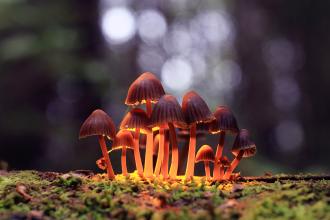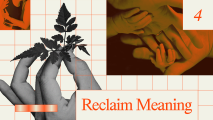Johns Hopkins is throwing its considerable clout behind the fast-growing field of psychedelic research, pouring $17 million into a research center to study the hallucinogenic drugs. This is — even by tie-dyed, Deadhead, Timothy Leary, spirit-of-the-60s, let-me-tell-you-about-Burning-Man standards — a lot of money to spend on psychedelics. According to FierceBiotech, the new Center for Psychedelic and Consciousness Research will be the first of its kind in the United States and the largest in the world.
But the data being gathered on the drugs — which include LSD, MDMA, psilocybin, and ketamine, along with an alphabet soup of lesser known compounds — shows promise in a variety of applications. Best known are the possible psychological benefits to psychedelic experiences.
The Promising Potential of Psychedelic Research
Although the field of psychedelic research isn’t a new one, the Center has set expectations high for fresh insights and advancements.
“The most exciting is the potential that a psychedelic treatment model may have, particularly when treating clinical conditions for which we don’t have effective treatments,” says Charles Grob, Professor of Psychiatry and Pediatrics at UCLA’s David Geffen School of Medicine.
These can include conditions like depression and addiction. Grob recently co-authored a pilot study looking at using MDMA for treating social anxiety in adults with autism.
Wilder still, psychedelics may have impacts outside of the brain and central nervous system.
Charles Nichols, a professor in the Department of Pharmacology and Experimental Therapeutics at LSU Health Medical Center, has found that the psychedelic compound DOI (structurally similar to mescaline) has anti-inflammatory effects — a bizarre discovery, Grob laughs, that came out of left field. Nichols’ tests in cell, mouse, and rat models show that a very small dose of the drug has a major impact on inflammation.
“When centers like Hopkins attract this money, it’s a validation of the field as being legitimate.”
Charles Nichols, a professor in the Department of Pharmacology and Experimental Therapeutics at LSU Health Medical Center
“The neat thing about this,” Nichols says, “is that some of the drugs we’ve looked at are very potent at producing these anti-inflammatory effects,” meaning that they may work at doses well below the threshold that would cause a patient to trip.
Johns Hopkins’ Psychedelic Research is Just Beginning
Psychedelic research, while promising, still has a long way to go to make up for the lost time that was collateral damage of the culture war of the 1960s. Both Grob and Nichols point to the credibility and respect Johns Hopkins commands as being key for advancing the field, even beyond the research that the center will eventually support and publish. (The large investment to fund the Center doesn’t hurt, either.)
“The most exciting is the potential that a psychedelic treatment model may have, particularly when treating clinical conditions for which we don’t have effective treatments,”
Charles Grob, Professor of Psychiatry and Pediatrics at UCLA’s David Geffen School of Medicine.
“I think this is very big,” says Grob, who admits to being a bit biased about Hopkins — he trained there, worked there, and was even born there.
But Nichols agrees.
“When centers like Hopkins attract this money, it’s a validation of the field as being legitimate.”






